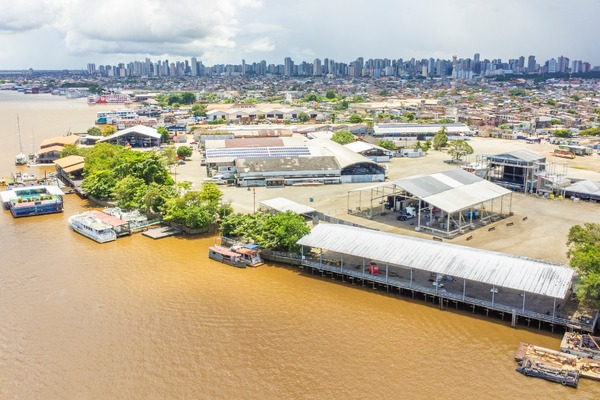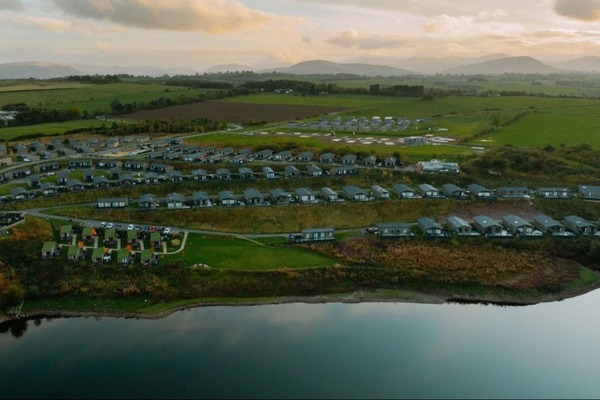The travel companies embracing Zero Waste Week
To mark Zero Waste Week, Andrew Doherty speaks with travel businesses reducing rubbish, from providing canvas bags to cutting single-use plastics
This week is Zero Waste Week (2-7 September), marking the perfect time for organisations to assess the steps they have taken to become more environmentally friendly.
Zero Waste Week is the brainchild of Rachelle Strauss, who was moved to create it after witnessing the destructive power of climate change first hand.
“I was on holiday in Boscastle during the floods in 2004 when the bridge into the town was blocked by debris and people had to be airlifted to safety,” she says. “I had read about climate change before, but after witnessing the floods, I realised it was happening now. I knew I needed to do something about it, to assess how the way I was living was affecting the environment.”
What began as a project to reduce household waste eventually caught the attention of the public, with Strauss’s My Zero Waste blog detailing her progress, reaching 80,000 people a month.
In September 2008, Zero Waste Week was born when Strauss decided to see if she could go for a week without generating any waste.
“I announced it to my readers and encouraged them to join in. They loved it and wanted me to keep doing it. Last year the Zero Waste Week hashtag reached 56 million impressions across 80 countries.”
Since then Strauss has been helping organisations, householders and community groups waste less by offering resources including on-site and online workshops, as well as Skype consultations. Now she’s encouraging the travel industry to get involved too.
“By taking part, you can set yourself apart from competitors and show clients you’re part of the solution,” she says.
Sustainability in practice
Operators already striving to reduce waste include Intrepid Travel, which held its first-ever Zero Waste Week in its Brixton headquarters last year.
“Our goal was to raise awareness of the waste we produce and look at how we can reduce it with minimal effort,” says head of trade sales Andrew Turner. “Throughout the week, we shared hints and tips on how to reduce waste on our intranet, using the hashtag #BrixtonPledge.”
Activities included providing staff with a reusable straw, hosting a zero waste “pot-luck” lunch – where people all brought in home-cooked lunch to share, with zero plastic packaging – and a Swap Till You Drop session, where the team traded their clothes and other possessions with each other.
“We also screened the BBC documentary Drowning in Plastic, which examined how waste impacts destinations around the world. At the end of each day, we weighed our waste to see if our activities were having an impact.”
As a certified B Corporation – a business that meets the highest standards of verified social and environmental performance, public transparency and legal accountability to balance profit and
purpose – Turner says Intrepid will continue its efforts to operate sustainably, including participating in Zero Waste Week again this year.
“Last year’s activities made everyone more aware of how easily they could reduce waste,” explains Turner, who adds that the week encouraged the operator to make permanent changes to how they work.
“We’ve made canvas tote bags available for staff to use when shopping. We also switched to getting our milk delivered in glass bottles that can be washed, sterilised and reused. We now source our fruit from Oddbox, which supplies imperfect fruit that would otherwise go to landfill. In London alone, we throw away nearly one million tonnes of food a year, and just over half of that is perfectly good.”
Inspiration from the top
Also tackling waste reduction head-on is Midcounties Co-operative, which has implemented sustainability initiatives across all its branches.
“We provide recycling facilities within each shop and support centre, give local schools out-of-date point-of-sale materials and brochures, stopped producing any plastic branded items and replaced plastic water cups with glass,” explains head of retail branches Natalie Turner.
Midcounties Co-op’s efforts to reduce waste don’t just stop there – the business supports charity partners by donating unwanted clothing, household items and helping to manufacture “ecobricks” made out of plastic bottles filled with waste.
Turner explains that whenever a branch is refurbished, eco-friendly measures are put in place. “We install sensor lights that switch off automatically, and where we have light switches, we have stickers to remind people to turn them off. We’ve also replaced paper hand towels in our central support offices with hand dryers.”
And it seems Midcounties Co-op will take its sustainability efforts well into the future, committing to its DOES (Democracy, Openness, Equality and Social Responsibility) values.
“When making decisions, we will always challenge ourselves to uphold DOES. Last year we provided a canvas bag to customers who booked with us to prevent further plastic waste, and we back educating young people about sustainability by supporting school lessons.”
So ask yourselves, what are you doing to reduce waste? From simply turning off lights when not needed to taking part in educational initiatives, there are plenty of ways you can be part of the solution.
Tips for cutting back on office waste
Zero Waste Week co-founder Rachelle Strauss says:
- Stop unnecessary printing: We’ve all printed off emails to read later, despite knowing it’s a waste of paper. You can encourage staff not to print by adding the subject heading “only print if essential”. If printing can’t be avoided, simply change the setting to draft mode. That way the printer will use less ink.
- Avoid single-use plastic: Use reusable bottles and cups for water and coffee. Some cafe
chains even offer discounts off your next purchase if you return used containers. - Reduce the number of bins: Take away individual bins from under the desk. It changes people’s mindsets when they don’t have a convenient way of getting rid of rubbish. Challenge staff to see if they can do it – it brings an element of fun.
- Download the Zero Waste Week guide: We offer a downloadable guide that contains ideas, campaign updates, images and tips to help plan your social media strategy around reducing waste for next year. (£39, zerowasteweek.co.uk)














